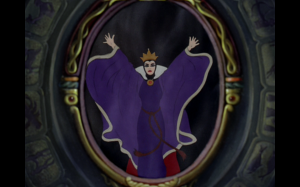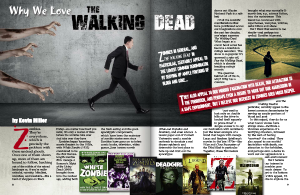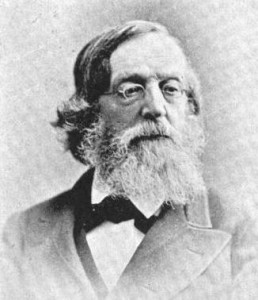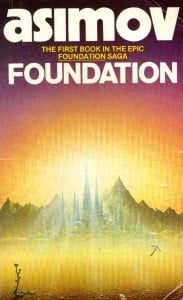 Several years ago I worked on a documentary called spOILed, which takes a rather unique look at our relationship with fossil fuels. In the film, we argue that contrary to what we’re told by the anti-oil industry (a.k.a the environmentalist movement), fossil fuels are the cleanest, safest form of energy ever discovered, and that anyone who argues otherwise simply doesn’t understand the role fossil fuels play in our lives–and what life would really look like if we stopped using them.
Several years ago I worked on a documentary called spOILed, which takes a rather unique look at our relationship with fossil fuels. In the film, we argue that contrary to what we’re told by the anti-oil industry (a.k.a the environmentalist movement), fossil fuels are the cleanest, safest form of energy ever discovered, and that anyone who argues otherwise simply doesn’t understand the role fossil fuels play in our lives–and what life would really look like if we stopped using them.
If that doesn’t piss you off–or make you want to watch the film–I don’t know what will. Either way, it helps to illustrate the point of this post, which is a term I picked up from spOILed’s director/producer Mark Mathis.
Prior to working in films, Mark was a media consultant for various corporations (prior to that he was a TV news journalist for ABC). Realizing most people are illiterate when it comes to how to manage the media, Mark wrote a book called Feeding the Media Beast, which lays out 20 principles to guide your interaction with the press.
The principle from Mark’s book that has always stuck out in my mind is the title of this blog post: frame or be framed. By this Mark means that if you don’t frame an issue properly, someone else will frame it for you, and likely in a way that benefits them rather than you. It’s akin to a similar phrase that this principle appears to echo–kill or be killed. You can either accept the frame that’s given to you, and the consequences that entails, or you can change the frame so that people see the issue in a completely different way, which opens up entirely new lines of dialogue and inquiry.
This is exactly what we sought to do in spOILed regarding fossil fuels. The frame given to us is that fossil fuels–and those who produce them–are the enemy. By challenging conventional wisdom about fossil fuels, we seek to reframe our relationship with them so that rather than regard fossil fuels as the enemy, people come to see them as the primary benefactor of humankind–and, ironically, our only hope of transcending the burning of fossil fuels in the future. (Excited to see the film yet?)
The term of “frame or be framed” may be unique to Mark, but the principle underlying it certainly isn’t. In fact, I think this principle guides pretty much every aspect of Christ’s ministry. Think of the Sermon on the Mount, for example. It’s a complete reframing of Old Testament law.
You have heard that it was said, ‘Love your neighbor and hate your enemy.’ But I tell you, love your enemies and pray for those who persecute you, that you may be children of your Father in heaven. He causes his sun to rise on the evil and the good, and sends rain on the righteous and the unrighteous. If you love those who love you, what reward will you get? Are not even the tax collectors doing that? And if you greet only your own people, what are you doing more than others? Do not even pagans do that? Be perfect, therefore, as your heavenly Father is perfect. (Matthew 5:43-48)
Whenever someone brings violence against us, such as beheading one of our citizens and then posting the video on YouTube, they are seeking to frame the issue on their terms. If we respond in kind, that means we are playing their game, not ours. Sure, we might justify our actions as preemptive, preventative or even compassionate, but no matter how you couch it, we’re still playing by their rules, the rules of retributive violence.
This is the genius of Christ’s teaching. He completely rejects the frame within which ISIS is working. Creating in-groups and out-groups is off-limits no matter what our enemies do to us. Every aggressive act against you is a frame that turns you into a victim. You may feel powerful when you respond in kind, but you are actually growing weaker, because you are depleting your moral reserves. By refusing to respond in kind, we can effectively reframe the issue, change the rules, and seize control of the situation so that now the aggressor has to play our game.
You have heard that it was said, ‘Eye for eye, and tooth for tooth.’ But I tell you, do not resist an evil person. If anyone slaps you on the right cheek, turn to them the other cheek also. And if anyone wants to sue you and take your shirt, hand over your coat as well. If anyone forces you to go one mile, go with them two miles. Give to the one who asks you, and do not turn away from the one who wants to borrow from you.
Note that none of the examples above entail a passive response in the face of evil or violence. They require an active reframing of the situation that is aimed not at self-preservation, the frame of the aggressor (which leaves us with only two options–fight or flight), but at emancipating the aggressor from his violent worldview. It is an inherently selfless response, which is why it is so effective.
For example, by turning the other cheek in the first century, you would force someone to strike you with his or her unclean hand, which would shame the aggressor into reconsidering his or her actions. In the first century, a Roman soldier could compel anyone to carry their gear for one mile, but it was against the law for them to compel you to carry it further. By insisting on doing do, you would place the soldier in a position of powerlessness where now they are begging you to stop so they won’t get into trouble.
If you don’t reframe the issue when violence is brought against you, you will inevitably be drawn into behavior that isn’t in keeping with your highest principles, behavior that you never intended to carry out, behavior that looks eerily similar to the violence brought against you in the first place. Like a sports team without a solid game plan, you will be reactive instead of proactive, the tail rather than the dog. In this case, you might be framed in another way, with your actions in the moment used to smear your entire character.
 Frame or be framed. It’s a simple principle, but that’s what makes it so beautiful–and powerful. In contrast, if we continue to accept the frame handed to us by our enemies, we will become weaker and weaker as we deplete ourselves both economically and morally in an endless cycle of mutual destruction.
Frame or be framed. It’s a simple principle, but that’s what makes it so beautiful–and powerful. In contrast, if we continue to accept the frame handed to us by our enemies, we will become weaker and weaker as we deplete ourselves both economically and morally in an endless cycle of mutual destruction.











